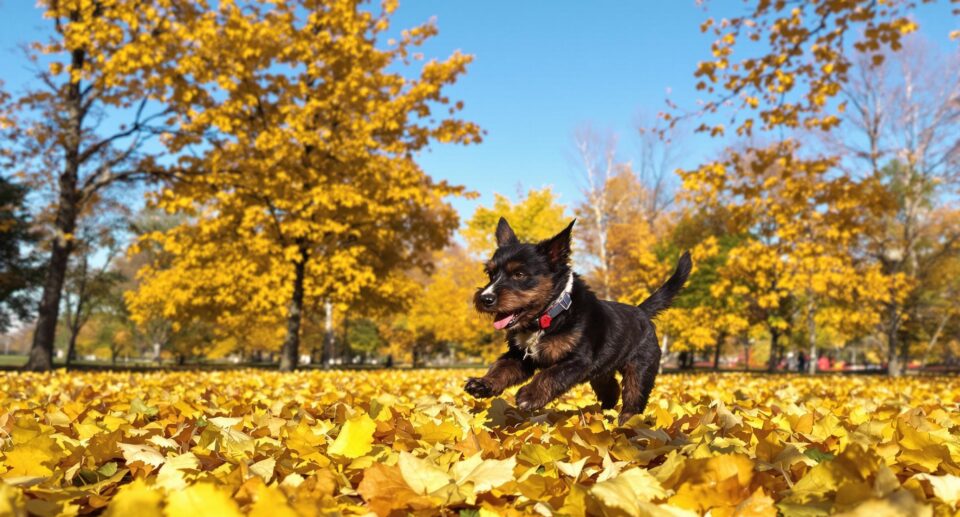4 Ways To Fight Fall Allergies In Dogs

Now that summer is officially over, you might be looking forward to saying goodbye to seasonal allergies. Unfortunately, fall brings a new wave of allergens that can make dogs and cats itchy and miserable. Learn about the most common fall allergies and what you can do to help your pet enjoy a healthy, itch-free autumn season.
What Causes Fall Allergies in Pets?
While the spring and summertime are host to allergens from trees and grasses, fall time is when tall, grassy weeds, namely ragweed, dry up and release pollen into the air. Just one single ragweed plant can release up to a billion pollen grains.
Mold allergies can also peak in the fall after cooling rains create damp spaces in leaf piles, dead wood, compost bins, and wooded areas. Mold can also flourish in homes that leak when it rains, creating damp indoor areas.
Flea bites are another common cause of allergy symptoms in the fall. For pets with flea bite sensitivity, even one bite from a flea can cause unbearable itching. Shorter, milder winters can mean longer peak flea seasons across many regions.
As the weather cools down, many pet parents turn on their forced heating systems for the first time in the fall. If the filters and HVAC system have not been cleaned since last winter, this can cause dust, pollen, and other allergens to circulate through the home.
4 Ways To Fight Fall Allergies In Pets
- Reduce allergen exposure. Allergies usually worsen over time as the immune system becomes more sensitive to allergens with repeated exposure. Clean up or remove damp areas on your property or in your home that may harbor mold.
- Bathe or wipe pets frequently. Bathing your pet as often as once a week can help reduce the presence of allergens, especially pollen that they may carry in from outside, that can cling to their paws and coat. An itch relief shampoo can also temporarily relieve symptoms. Keep in mind, though, that overbathing can cause skin dryness and worsened irritation. Bath wipes or paw wipes are great for use between baths.
- Give an over-the-counter allergy remedy. You can give your pet diphenhydramine, an antihistamine that reduces inflammation. Avoid using made-for-humans products that can contain additives that are toxic to dogs and cats.Allergy&relief products for pets that contain probiotics, apple cider vinegar, omega-3 fatty acids and colostrum can also protect skin and coat health and help reduce symptoms of fall allergies in pets.
- Consider prescription allergy medication. Your veterinarian can prescribe allergy medication that works quickly to relieve itching and inflammation in pets with allergies.
Fall allergies in pets can worsen over time. Prolonged itching and inflammation can lead to secondary skin infections and other complications. If your pet’s allergy symptoms worsen or do not improve, make an appointment with your veterinarian or schedule a same-day online televet appointment with VetLive today.





